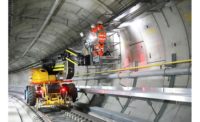 |
| Moes |
It became a running joke in my family, especially since a large number of my extended family members are also engineers; like any contrary child, I stubbornly denied that I would ever be an engineer.
However, as I grew, I began to understand what engineers actually do, and I slowly realized that the profession fits every aspect of my personality—from little details to overarching goals.
As a simple example, engineers excel at organizing data into spreadsheets; I believe Microsoft Excel is an excellent invention, and I use it to organize everything from daily expenditures to a four-year college course schedule.
At a deeper level, engineering is built on scientific knowledge and technical data; I’ve always loved math and science, so much so that I sometimes say 'I speak math.'
Engineering is fundamentally the process of solving problems within constraints; I thrive on solving puzzles of all varieties, from the technical challenge of designing a simple beam structure to the managerial organization a ballroom dance competition to the complex question of sustainably fueling America in years to come.
And ultimately, engineering has an unparalleled ability to tangibly impact our society; I want to make a sustainable and lasting impact that will improve the world for future generations to appreciate.
All things considered, it’s clear that I’m meant to be an engineer.
I’m now studying mechanical engineering—regardless of the prophetic t-shirt of my childhood—and when I finish my degree, I intend to enter the field of energy and sustainability, as managing energy production and use is one of the biggest and most important challenges engineers will have to face in the coming years.
After I gain experience in industry and find my particular niche, I would like to work in a leadership role, whether that be in management or as a technical leader. As such, the question of how to approach a shortage of engineers is one I will likely face in the future.
In my opinion, the largest untapped reservoir of engineering potential is college freshmen and sophomores who consider the field, and perhaps even start some engineering classes—but ultimately pursue other paths.
As far as I can tell, the largest deterrent for these students is the notoriously difficult coursework of any engineering curriculum. Somehow, the prospect of spending late nights in the lab and countless hours on problem sets doesn’t exactly sound like fun to college students.
After general chemistry and physics courses, or maybe the first more serious engineering course, prospective engineering students drop like flies, convinced they can’t handle the work load.
In this scenario, there are two variables one could influence to improve retention rates: the engineering curriculum itself, and the confidence and drive (or lack thereof) of the students.
Unfortunately, the engineering curriculum itself is neither easy nor desirable to change. It is grounded in years of tradition and expectations, and universities are slow-moving beasts.
Simplifying the engineering curriculum is not a solution to the problem. It may increase the number of engineers, but in turn decrease the overall quality of their work—a price we cannot afford to pay.
So we must aim to change the students’ attitude towards engineering—give them the confidence and drive to overcome the necessary academic challenges and graduate as competent engineers.
When I was five years old, my dad, a chemical engineer, bought me a clever American Institute of Chemical Engineers (AIChE) shirt sporting Dalmatians with the caption “can you spot the future chemical engineer?”

Post a comment to this article
Report Abusive Comment